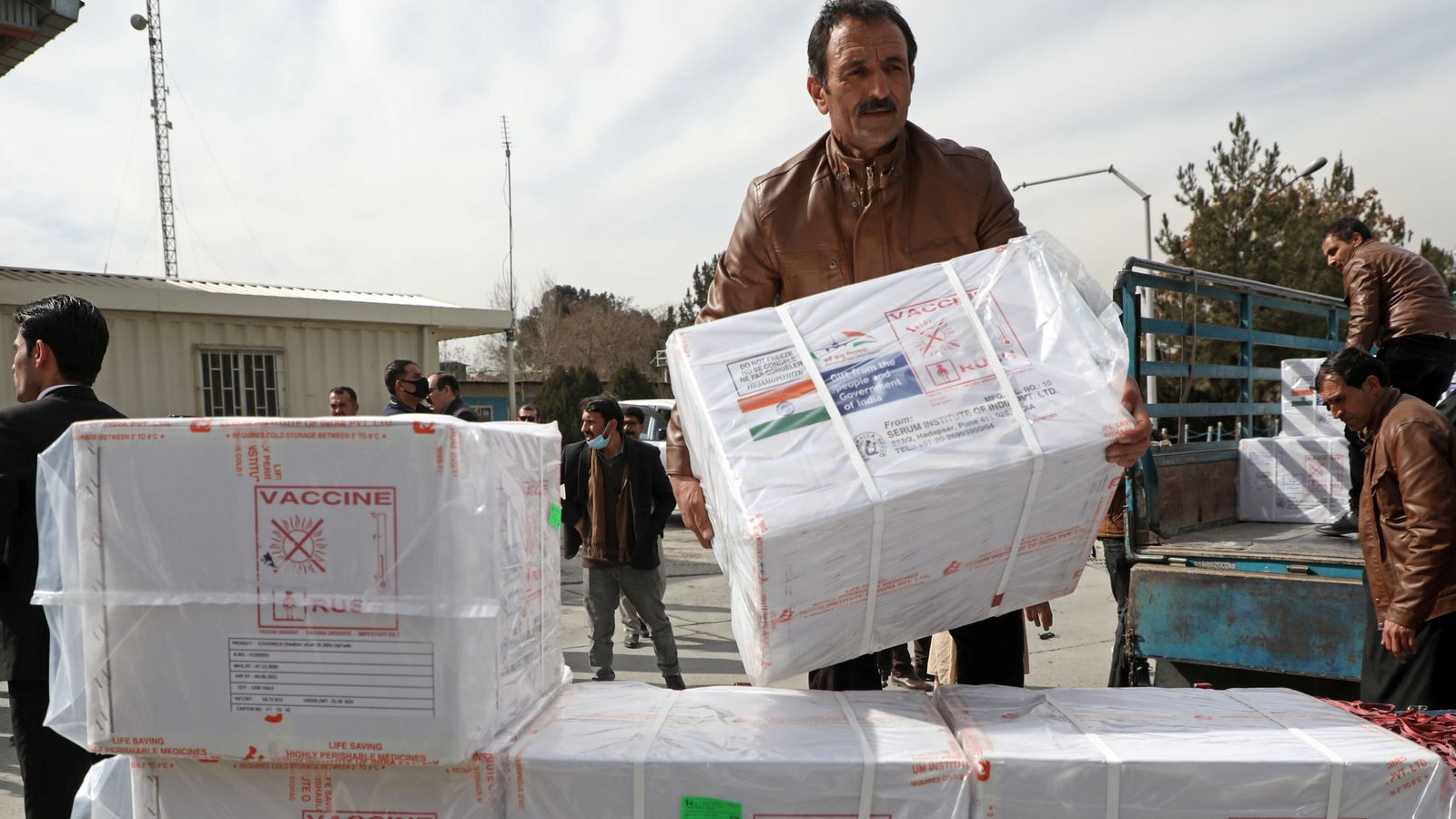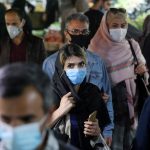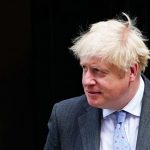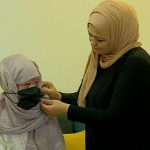COVID vaccinations in Afghanistan have dropped by 80% since the Taliban took control of Kabul last week, the United Nations has said.
UNICEF, a UN agency, warned that half of the coronavirus vaccine doses which have been sent to the country are close to expiry.
Since the Taliban seized control of Afghanistan‘s capital on 15 August, just over 30,000 people were inoculated in 23 of the 34 provinces. In the previous week, 134,500 people were vaccinated in 30 provinces, according to UNICEF.
Follow live updates from Afghanistan as the first US troops leave Kabul
“The drop is understandable, as in situations of chaos, conflict and emergency, people will prioritise their safety and security first,” a UNICEF spokesperson said.
The spokesperson declined to comment about whether the drop in jabs is because of a possible Taliban vaccine scepticism but warned of the risks of a slow rollout.
Since the start of the pandemic, Afghanistan has reported 153,000 cases and 7,083 deaths.
Nearly two million doses of the Johnson & Johnson vaccine delivered to the country – about half of the total so far – will expire in November.
Data from the World Health Organisation (WHO) shows that only 1.2 million doses had been administered as of 20 August, out of a population of 40 million.
Please use Chrome browser for a more accessible video player
Gavi, which co-leads the Covax programme with the WHO, said more than four million doses had been delivered to Afghanistan so far.
“Our priority today is to work with UNICEF and WHO country offices to ensure our ability to continue the country’s COVID-19 vaccination programme,” a Gavi spokesperson said, declining to comment on whether vaccinations had been hampered by the Taliban.
Since the Taliban takeover of the country, following the withdrawal of Western forces, foreigners who worked in the country and Afghanis who had supported troops have been scrambling to board evacuation flights in the last week.
More than 9,200 people have been flown to safety in the UK since 13 August as part of what has been dubbed Operation Pitting.
Please use Chrome browser for a more accessible video player
Over the weekend the Department of Health and Social Care announced that Afghan refugees arriving in the UK are set to be offered a COVID vaccine as part of the relocation scheme.
Those entering Britain will be offered their first dose of the jab on arrival with vaccination points set to be opened at the hotel quarantine sites.
The deadline for evacuation is on 31 August, with Boris Johnson failing to secure an extension.
According to The Guardian newspaper, the last Royal Air Force aircraft carrying Afghans to safety from Kabul airport could even be in the next “24 to 36 hours”.
But defence sources described the timeline as speculative and said it was not “set in stone”.
On Tuesday, China’s ambassador to Kabul, Wang Yu, held a meeting with the deputy head of the Taliban’s political office, Abdul Sala Hanafi.
Bejing’s foreign ministry spokesperson, Wang Wenbin, did not give any details about the meeting but said China has established an “open and effective communication and consultation with the Afghan Taliban.”
Follow the Daily podcast on Apple Podcasts, Google Podcasts, Spotify, Spreaker
He added that China considered Kabul to be an “important platform and channel for both sides to discuss important matters of all kinds.”
China hosted a delegation led by senior Taliban leader Mullah Abdul Ghani Baradar for talks last month, prior to the group’s sweep to power.
China has kept its embassy open and says it has no plans for a wholesale evacuation of its citizens in Afghanistan, while also criticising the US over the chaotic scenes at Kabul airport.
“We have always respected Afghanistan’s sovereign independence and territorial integrity, pursued a policy of non-interference in Afghanistan’s internal affairs and adhered to a policy of friendship toward the entire Afghan people,” Mr Wang said.
“China respects the Afghan people’s independent decision on their own future and destiny, supports the implementation of the Afghan-led and Afghan-owned principle, and stands ready to continue to develop good-neighbourly relations of friendship and cooperation with Afghanistan and play a constructive role in the peace and reconstruction of the country.”






















